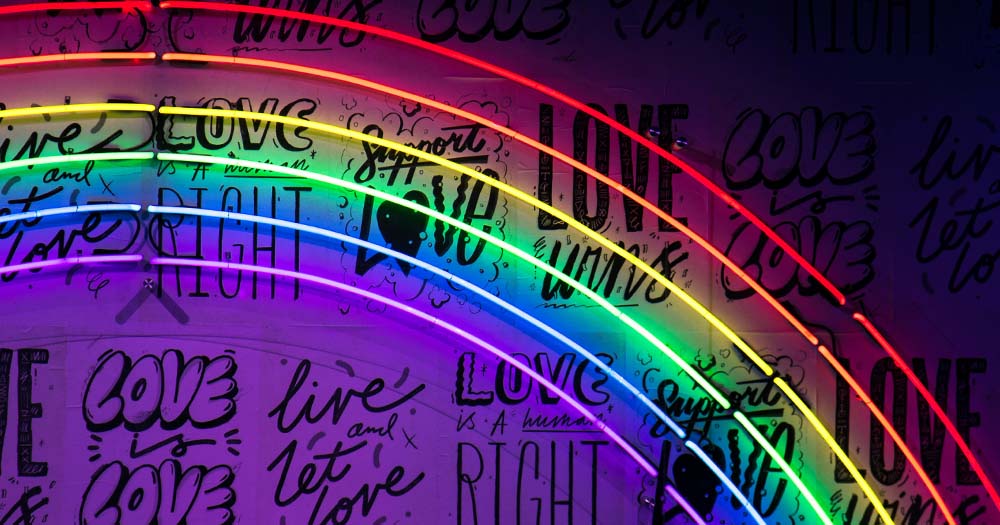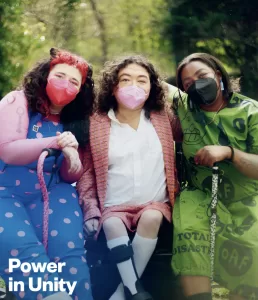Outhouse CEO Oisín O’Reilly reflects on “rainbow washing” and how to create genuine partnerships with corporations that enable LGBTQ+ charities to focus on long-term priorities and advocacy efforts.
It will come as no surprise to readers of GCN that Pride’s origins are rooted in protest. The brave actions of LGBTQ+ people throughout history, notably the Stonewall riots in 1969, catalysed the global movement for equity and acceptance.
Ireland, too, has its own history of struggle and triumph, from the demonstrations of the Sexual Liberation Movement in 1974, to the decriminalisation of homosexuality in 1993, to the Marriage Equality Referendum in 2015. The celebration of Pride that we see today in Ireland and many other parts of the world is very far from its radical roots.
While organisations like Dublin LGBTQ+ Pride do a fantastic job of spotlighting our rich history and ensuring that the day of Pride is a march first and foremost, it is undeniable that Pride parades have transformed into grand spectacles, often resembling festivals rather than the grassroots movements they once were.
The rainbow flag, a symbol of LGBTQ+ pride and solidarity, can be seen throughout Dublin, adorning our buildings, lining our streets and being flown by our community and allies. It can even be seen on everything from beer cans to banking logos.
In recent years, we have seen a steep rise in corporate involvement with Pride. To many, Pride’s increased visibility and “mainstreaming” is seen as a positive step towards greater inclusion. But corporate involvement has also been fraught with tension.
Many LGBTQ+ individuals and organisations have concerns about “rainbow washing” — a term used to describe the superficial use of LGBTQ+ symbols and messaging by companies without a genuine commitment to LGBTQ+ rights and support. This tension has led to the emergence of alternative Pride events and protests that exclude corporate involvement and sponsorship.
As an LGBTQ+ charity, Outhouse LGBTQ+ Centre and many LGBTQ+ organisations often find ourselves navigating a complex landscape.
While government funding is crucial for supporting our work, it can also be restrictive and unreliable, and being overly dependent on the government can put organisations in a difficult position when campaigning for policies, laws and practices to improve the rights, protections and lived experience of LGBTQ+ people.
Meaningful partnerships with corporations can provide LGBTQ+ organisations with greater independence, access to essential resources, and stability, allowing us to deliver more impactful services to those who need them most and safeguarding our independence to advocate for the right policies and laws to enhance equity.
However, corporate partnerships come with their own set of challenges, particularly when brands engage in tokenistic gestures or inadvertently perpetuate harmful stereotypes.
Genuine partnerships with corporations can enable LGBTQ+ charities to focus on long-term priorities and advocacy efforts, but it requires a delicate balance to ensure that these partnerships are authentic and prioritise the public benefit to LGBTQ+ people, supporters, organisations, and our society.
So how do we move forward?
To address the issue of rainbow washing, Outhouse LGBTQ+ Centre partnered with the Institute of Advertising Practitioners in Ireland (IAPI), Marketing Institute Ireland (MII), Ibec, ADvocates, and TU Dublin to host a masterclass called ‘Over the Rainbow’ in March this year.
This event challenged the advertising and marketing industry to steer away from rainbow washing and instead work towards building genuine partnerships to support the LGBTQ+ community.
While one event won’t change everything, we were encouraged by the positive response and willingness within the industry to learn and improve practices. If companies can truly understand the need to prioritise the public benefit to LGBTQ+ people and our society over the private benefit to brands, we can foster more genuine, deeper engagement and support that uplifts the whole community.
This coming Pride and beyond, it is essential for brands and organisations to approach LGBTQ+ partnerships with sincerity and accountability. By focusing on the voices and needs of the LGBTQ+ community, we can ensure that Pride remains a celebration of progress and solidarity.
As we reflect on the evolution of Pride from its radical roots to its current mainstream visibility, it’s crucial to address the issue of rainbow washing in corporate involvement. While partnerships with corporations can offer invaluable resources, it’s imperative that these alliances are genuine and prioritise the public benefit to LGBTQ+ people and our society.
We also urge you, our community, to consider the influence you may hold, particularly if you work with brands or organisations that participate in Pride. For those of you with connections or influence in corporate spaces, please keep the message of this article in mind and work towards fostering authentic partnerships that uplift the LGBTQ+ community.
If you’re interested in learning more about how to build genuine engagement, please reach out to John at [email protected] or me at [email protected] – we’re eager to help.
Together, let’s ensure that Pride remains a beacon of progress and solidarity for all.
This story originally appeared in GCN’s April 2024 issue 383. Read the full issue here.
© 2024 GCN (Gay Community News). All rights reserved.
This article was published in the print edition Issue No. 383 (April 1, 2024). Click here to read it now.
Support GCN
GCN is a free, vital resource for Ireland’s LGBTQ+ community since 1988.
GCN is a trading name of National LGBT Federation CLG, a registered charity - Charity Number: 20034580.
GCN relies on the generous support of the community and allies to sustain the crucial work that we do. Producing GCN is costly, and, in an industry which has been hugely impacted by rising costs, we need your support to help sustain and grow this vital resource.
Supporting GCN for as little as €1.99 per month will help us continue our work as Ireland’s free, independent LGBTQ+ media.

